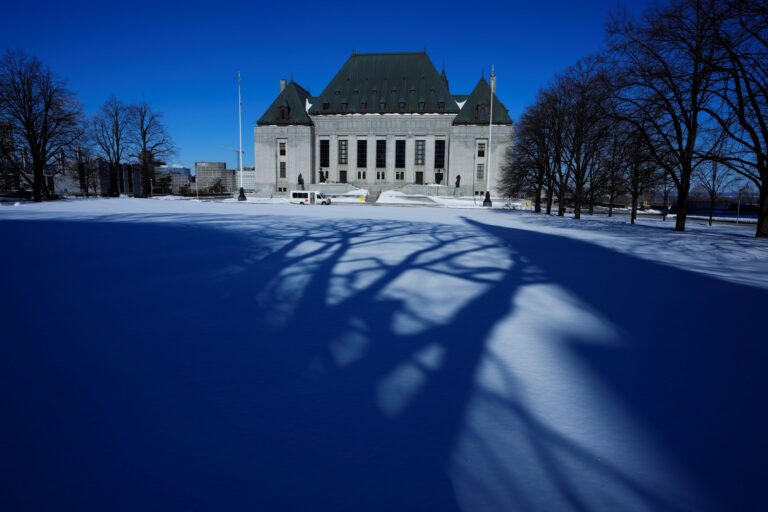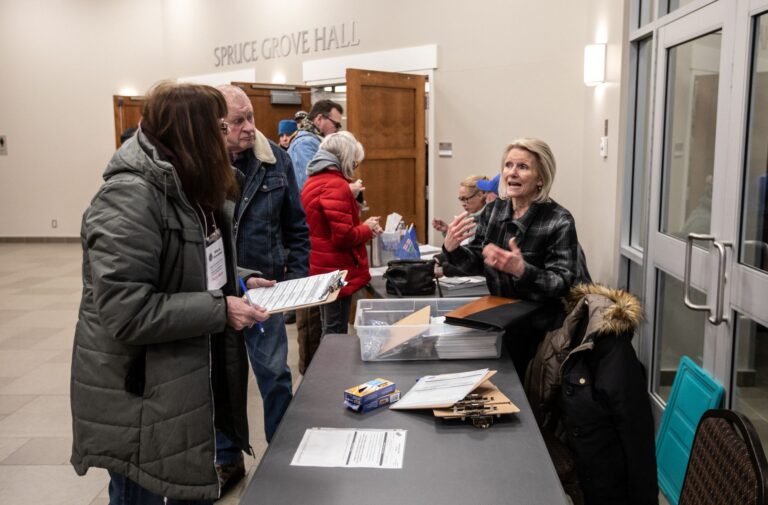Public opinion surveys consistently show low levels of trust in political parties and politicians, although trust in other institutions such as Elections Canada or the armed forces remains high.
Academic studies are mixed about whether political trust, while low compared to other types of trust, is actually in decline. Neither confidence in government nor satisfaction with democracy has fallen over time, based on the Canadian Election Studies.
What’s most concerning, however, about Canadians’ continuing low levels of political trust is its confluence with forces such as polarization, populism, deep cynicism and conspiratorial thinking – core drivers of the alarming democratic erosion and institutional decay gripping the United States.
Our upcoming book, Inclusive Politics: Building Trust through Diverse Local Candidates, argues that increasing the number of racialized candidates could play a role in building greater trust in Canadian politics.
We focus on, but are not limited to, racialized Canadians and the identities they share with candidates. We find that in an experimental setting, racialized candidates are on average viewed as more trustworthy by Canadians across racial backgrounds and partisan identities.
Representation still falls short of Canada’s demographics
The percentage of racialized candidates and elected officials has grown over time but remains below the percentage of those who identify as racialized minorities, compared to the overall population of Canada.
Just 20 per cent of candidates and slightly less than 18 per cent of elected MPs in the April federal election were racialized. In the 2021 census, 26 per cent of Canadians were racialized. Estimates indicate this will be about 30 per cent in 2025 and may be higher than 40 per cent by 2041. As a matter of basic justice and effective representation, Canada is not making sufficient progress.
We argue in our book that an increasing diversity of candidates could therefore have important positive consequences for Canadians’ trust in their politics and politicians.
Why? Because most candidates are leaders in their communities – many having strong attachments and networks within local business, civic and social groups. This may be especially true for many racialized candidates with strong ties to local identity-focused organizations.
Why identity shapes trust
As recognized leaders who may be seen as distinctively representative of their local communities, racialized candidates’ engagement with, and appeal to, voters may be built around shaping positive impressions of their empathy, responsiveness and motivations, thus increasing voters’ sense they can be trusted. That, in turn, may strengthen broader trust in politics and the political system.
Our argument is based on social identity theory and related ideas, built on the premise that individuals’ attitudes and behaviour develop from their self-conceptualizations of group membership, as well as emotional and psychological attachment to these group self-identifications.
These social identities generate in-group and out-of-group preferences, comparisons and biases, as well as attitudes of “linked fate” – the belief that one’s future, opportunities and status are linked to the future, opportunities and status of the social group.
Trust develops because a person believes that an “affinity” candidate – one with whom they share salient social identities – also shares their interests and will be invested in their success.
What we still don’t know about racialized affinity
Surprisingly, there is no significant research on racialized affinity and trust in Canada. One of the goals of our upcoming book is to fill this gap and to encourage scholars to focus on this question.
We know that affinity may have positive effects on perceptions of candidates’ empathy and compassion. In the U.S., studies have shown that racialized candidates can positively affect trust, political efficacy and political engagement in individuals who share their racialized identities.
In Canada, there is some evidence of affinity voting. A study by Karen Bird, one of the co-authors of this commentary, shows that racialized Canadians were particularly inclined to listen to, and connect with, racialized affinity candidates and described a sense of satisfaction on seeing candidates and elected representatives who shared their identities.
But the relationship between Canadians’ racialized identities and their political trust, as moderated by the presence of racialized candidates, remains undiscovered.
Our book examines this relationship in a number of ways. We first investigate trust attitudes and how they are conditioned by racial identities and other factors.
Inside our national experiment on trust
How do we do so? In 2023, we ran an online national survey which presented 4,950 respondents from all backgrounds with fictional candidate profiles, each with a set of randomized attributes (for example, race, gender and political party).
We asked respondents to rate the trustworthiness of these fictional candidates. We use these responses to determine what kinds of candidates are more or less trusted and what kinds of Canadians the respondents tend to trust or distrust. We also look at racialized and gender aspects of both candidates and voters.
We then consider the role of context in trust, including things such as racial diversity and socio-economic status at the level of communities within which racialized Canadians live.
Finally, we examine how trust based on shared racialized status can translate to broader system-level attitudes such as being satisfied with Canadian democracy.
What the findings show
We’ve already learned a few interesting things. For example, our experimental results suggest that racialized candidates are on average assessed as more trustworthy than others by Canadians of all backgrounds, but that racialized Canadians are less trusting generally.
We also find that both women and racialized candidates are more trusted than their male and white counterparts, but the intersectionality of women and racialized candidates creates weaker trust than expected. We also uncovered some evidence that racialized Canadians are more satisfied with democracy when there are more racialized candidates running in their districts.
Trust is fragile and while there may be some hope that Canada is in a stronger position relative to our closest friends and allies globally, we need to be vigilant about how we can build and strengthen trust relationships between Canadians and our politicians.
This article is part of a series on political leadership and trust. Click here to read more.
















